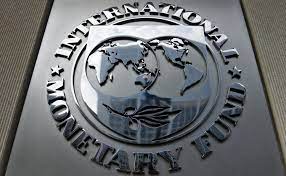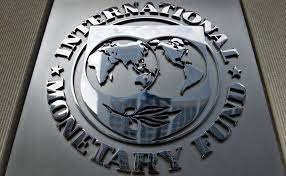
After governments all around the world allotting unprecedented fiscal stimulus for warding off the economic impact of the Covid-19 pandemic, policymakers now should focus on creating plans for returning back to more sustainable budgets and implement policies that are able to win the trust of investors, advised the International Monetary Fund on Thursday.
However, the global banking organization noted in its Fiscal Monitor report that the opportune timing and the speed of fiscal consolidation need to be determined for themselves by each country.
While making changes to their fiscal policies, governments need to consider a number of factors including the stage of the pandemic the country is in, the current fiscal vulnerabilities, the extent of risks of economic damage, the pressures of from aging populations, the need for developmental projects and historical issues of governments in collecting revenues.
Recommitting to fiscal sustainability through reliable medium-term fiscal frameworks could help countries to not only give themselves more time but also to support the impact of debt stabilization, the IMF said in a Fiscal Monitor chapter titled "Strengthening the Credibility of Public Finances".
"When lenders trust that governments are fiscally responsible, financing larger deficits and debt rollovers becomes easier," the IMF said.
It has been possible for countries that already had dependable fiscal framework plans to bring down their costs of borrowings, the IMF report said based on research done by the organization. Such countries therefore could have the opportunity to reverse the fast increase in debt quite quickly. The report noted that in the eventuality of no other economic shocks happen, it could be possible for such countries to be able to reverse a 15 per cent rise in debt within a decade.
Countries and governments should pledge to broader fiscal targets with underlying tax and spending policies for the forthcoming next three to five years, and implement specific policies such as tax increases or raising the retirement age, the Fund suggested.
Fiscal rules, such as limiting budget deficits to a certain percentage of GDP or establishing independent fiscal councils within governments, could boost credibility, according to the report. It added that countries would be helped if the goals were easy to communicate.
However the deficit sustainability aimed fiscal plans should also be flexible enough to give scope for economies to stabilize and prevent spending cuts in crucial public investments, the IMF said.
"Changes to taxes or spending can be pre-legislated and can be made contingent on the recovery," the IMF said.
The IMF report cited the United Kingdom's announcement that corporate rates would rise in April 2023, as well as Israel's passage of a sunset clause for extended unemployment benefits tied to achieving a lower unemployment rate.
(Source:www.livemint.com)
However, the global banking organization noted in its Fiscal Monitor report that the opportune timing and the speed of fiscal consolidation need to be determined for themselves by each country.
While making changes to their fiscal policies, governments need to consider a number of factors including the stage of the pandemic the country is in, the current fiscal vulnerabilities, the extent of risks of economic damage, the pressures of from aging populations, the need for developmental projects and historical issues of governments in collecting revenues.
Recommitting to fiscal sustainability through reliable medium-term fiscal frameworks could help countries to not only give themselves more time but also to support the impact of debt stabilization, the IMF said in a Fiscal Monitor chapter titled "Strengthening the Credibility of Public Finances".
"When lenders trust that governments are fiscally responsible, financing larger deficits and debt rollovers becomes easier," the IMF said.
It has been possible for countries that already had dependable fiscal framework plans to bring down their costs of borrowings, the IMF report said based on research done by the organization. Such countries therefore could have the opportunity to reverse the fast increase in debt quite quickly. The report noted that in the eventuality of no other economic shocks happen, it could be possible for such countries to be able to reverse a 15 per cent rise in debt within a decade.
Countries and governments should pledge to broader fiscal targets with underlying tax and spending policies for the forthcoming next three to five years, and implement specific policies such as tax increases or raising the retirement age, the Fund suggested.
Fiscal rules, such as limiting budget deficits to a certain percentage of GDP or establishing independent fiscal councils within governments, could boost credibility, according to the report. It added that countries would be helped if the goals were easy to communicate.
However the deficit sustainability aimed fiscal plans should also be flexible enough to give scope for economies to stabilize and prevent spending cuts in crucial public investments, the IMF said.
"Changes to taxes or spending can be pre-legislated and can be made contingent on the recovery," the IMF said.
The IMF report cited the United Kingdom's announcement that corporate rates would rise in April 2023, as well as Israel's passage of a sunset clause for extended unemployment benefits tied to achieving a lower unemployment rate.
(Source:www.livemint.com)





